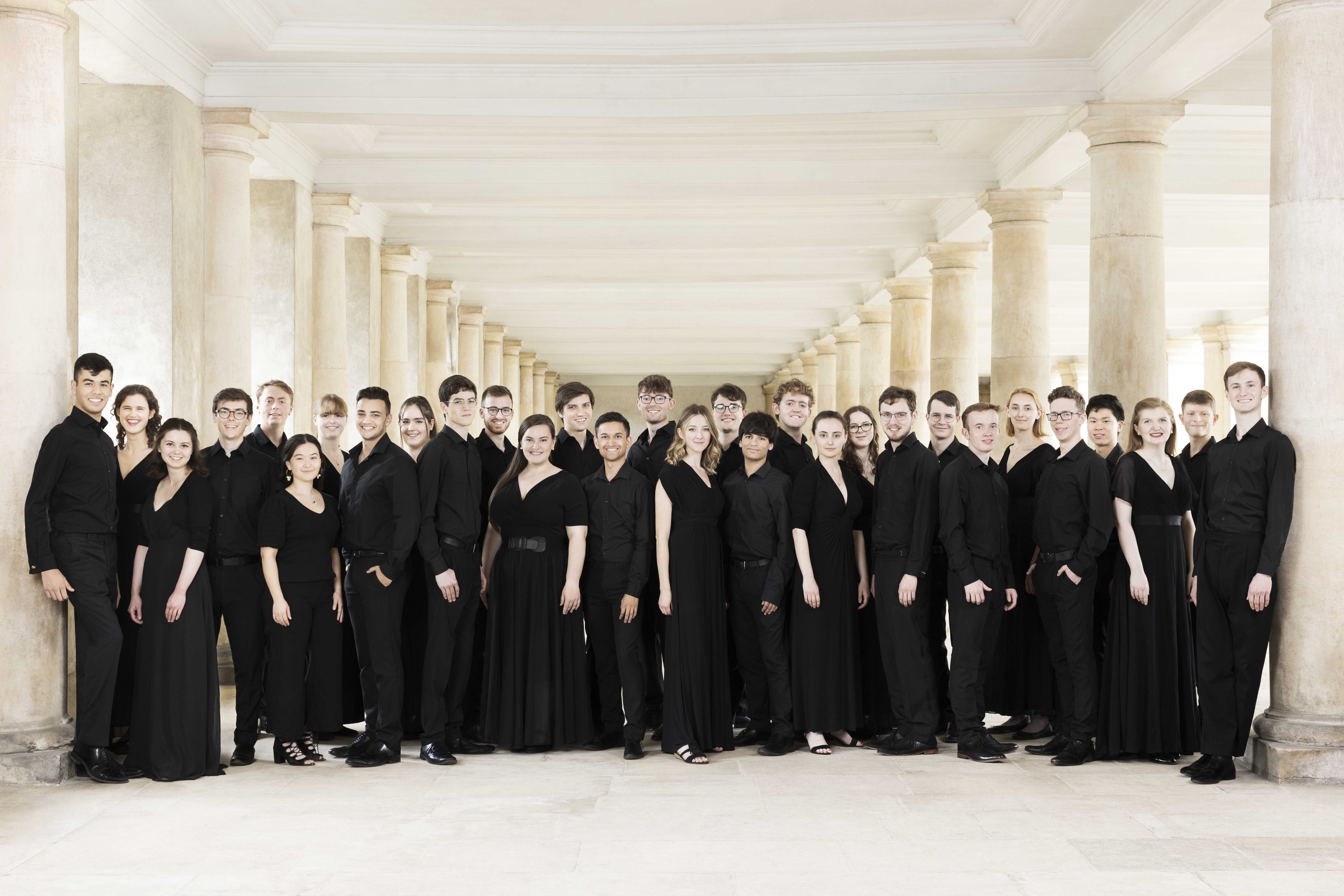The Choir of Trinity College Cambridge at Town Church, Guernsey, July 2025
> See concert details...For more than 470 years, members of this choir have been singing liturgy in the Trinity College Chapel several times each week, and it was their Town Church concert of sacred music that so many of us had been waiting to hear.
The programme had been put together with a thoughtfulness that gave us an insight into the remarkable versatility of this choir. From the medieval mysticism of Hildegard of Bingen, through the sumptuous harmonies of Tallis, Gibbons and Byrd, and on to the newer, sometimes disturbing sounds of Stanford, Herbert Howells, James MacMillan, Hubert Parry, Judith Weir and Cheryl Frances-Hoad, the fine-tuned talents of these choristers was on display. Their voices – all soloist-quality, to my ears – their accuracy, their sensitivity to direction and their ability to blend with one another; all was drawn forth and shaped by a conductor who evidently cares deeply, not just for the music, but for these young singers.
Each visibly strives to follow his lead, as he strives to guide them towards perfection. As a renowned organist in his own right, you could see how Steven Grahl used those skills to great effect – as though the choir itself were a myriad of organ pipes, stops and pedals that needed to be played with precision, timing and accuracy. His movements were unwasteful, focused and delicate, and the choir responds almost before his hands have moved.
In a programme too dense with delights to cover in detail, every piece, solemn or light-hearted, brought a frisson of pleasure. But there was one work that I felt showed the choir of Trinity College as an almost superhuman entity, for their navigation of something ferociously complex – without loss of nerve, timing or tuning. This was ‘Come Holy Ghost’, by Jonathan Harvey,
who died in 2012.
It opened with floating plainsong chant from a glorious bass voice, which hung in the nave glowing… and was gradually joined by crystalline young voices, which left space for the other harmonies to shine through, as through overlays of stained glass. Imperceptibly, the soundscape shifted and fragmented from unity into a shimmering cloud, atonal but exquisite in the same way a sky full of different birds singing their hearts out is uplifting.
This must be a terrifying piece to sing – how to find one’s note back home to the original pitch for the sublime unity of the final plainsong, defies imagination. The audience sat in a kind of dumbfounded awe for incalculable moments until we could breathe and return to earth once more.
A key element of the choir’s style is the new-minted quality that they bring to even the most familiar pieces. There is a questing spirit that is not just building towards a predetermined vision of excellence: it feels as if each note is being determined in the moment of its creation, an elastic dynamism that relies on instantaneous recognition and response.
Grahl calls forth the deep sensitivity of each singer and sculpts it into something that resonates almost viscerally with the listener. To release that individual exposure, so the singers feel complete commitment to, and trust in their guide, is the ideal relationship of choirmaster and singers. And what a gift, for a conductor, to have access to some of the best voices around, eager to follow… it must be profoundly satisfying on both sides.
Town Church felt gilded by their singing, and the radiance followed us out into the evening air. This was music that speaks to the soul, and we felt blessed to have experienced it.”
Julia Meredith
